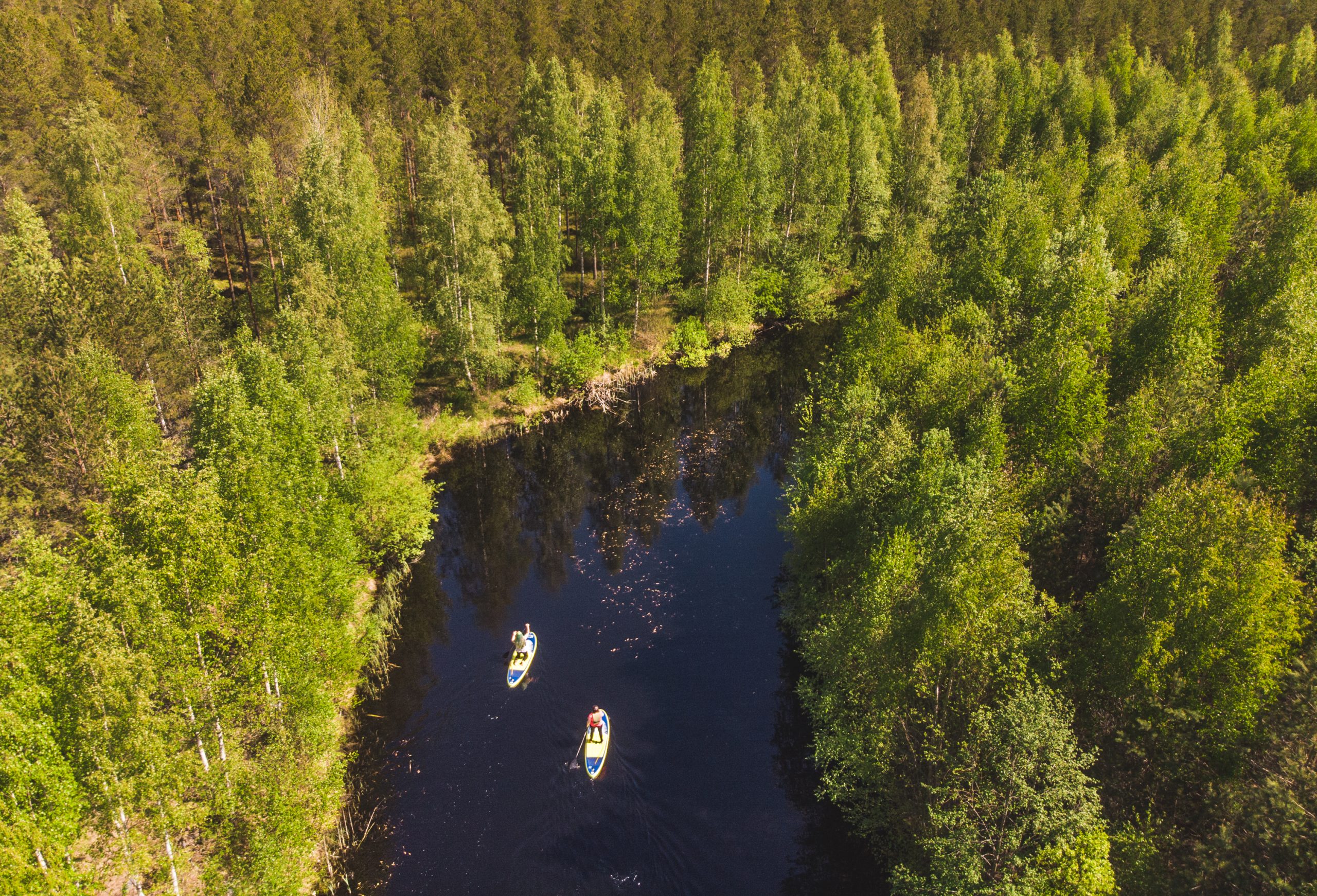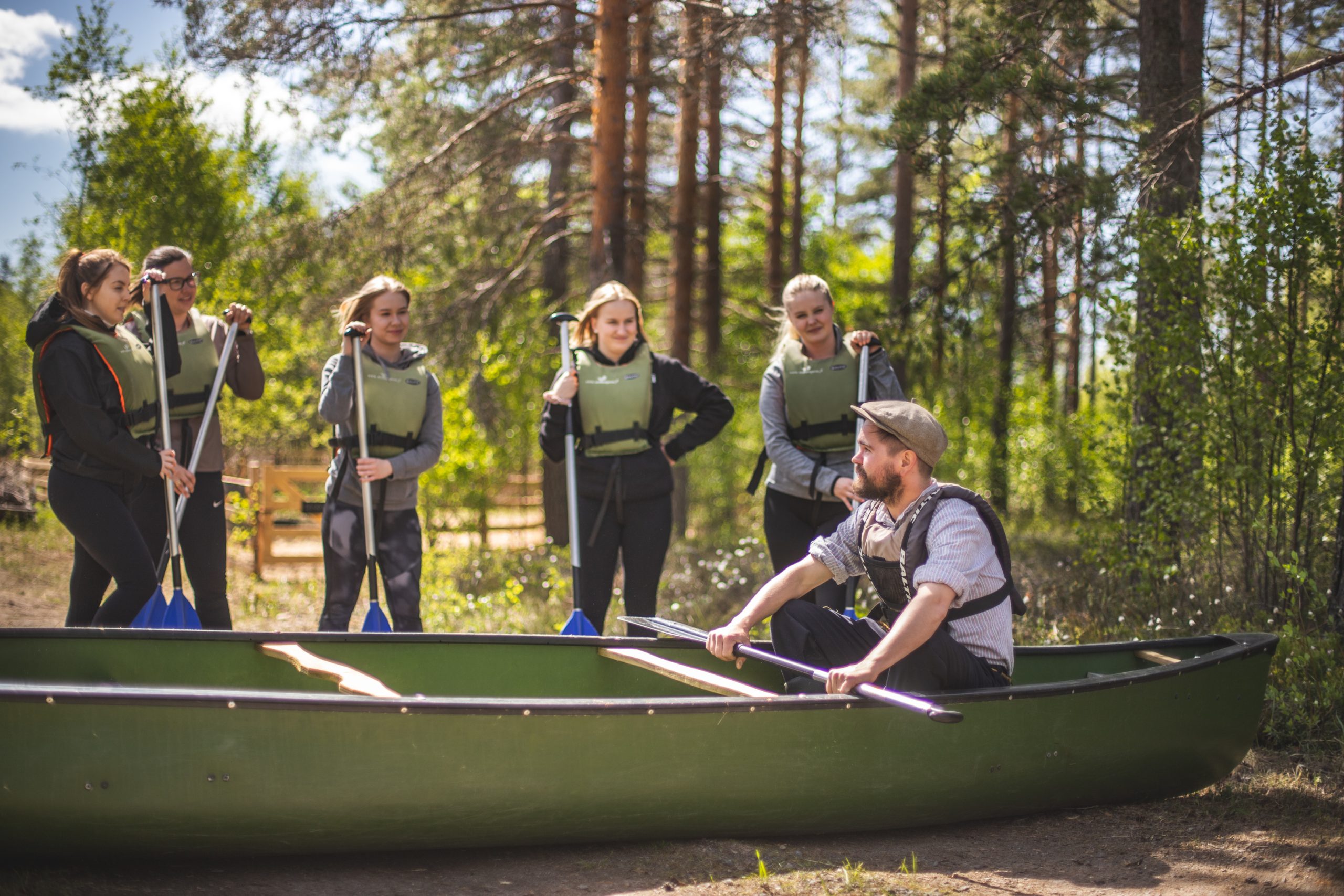PRINCIPLES OF SUSTAINABLE TRAVEL
TOWARDS COMMON GOALS FOR A MORE SUSTAINABLE TRAVEL FINLAND
JOINT POSITION OF TRAVEL OPERATORS
During the spring of 2019, Visit Finland updated the national principles of sustainable travel with various stakeholders. The update also accounts for the policy issues raised in the international discussion.
The common principles of travel operators are a statement on the following areas:
- Cooperation
- Ecological Sustainability
- Cultural Sustainability & Heritage
- Social Sustainability & Welfare
- Persistence & Locality
- Quality & Safety
- Climate Change & Resource Wisdom
- Responsibility Communication
- Economic Sustainability & Competitiveness
- Commitment
By signing the ten principles of sustainable travel, we commit to working for a more sustainable Finnish travel industry. We recommend that you make these principles visible in your operations, as they are used to communicate these common goals to stakeholders.
1. WE BELIEVE IN FAIR COOPERATION
We develop travel in cooperation with other actors in our region and industry. Together we can better impact the future of society and travel. Because we want our region to be a great place to live and visit both now and in the future, we make decisions that are sustainable for future generations, as well. We treat everyone with respect and fairness, and we only conduct fair and honest business.
2. WE TAKE CARE OF NATURE
We protect our region’s environment, landscapes and biodiversity. Our operations do not exceed the carrying capacity of nature, but help to safeguard the opportunities for a good life and the preservation of our region’s clean operating environment. We also take care of the welfare and dignified treatment of our animals.
3. WE RESPECT CULTURAL HERITAGE
We preserve the cultural heritage of our region. We aim to present, revitalise, maintain, and strengthen culture genuinely and respectfully. We also understand that cultures have always developed in interaction and learned from each other.
4. WE PROMOTE WELLBEING, HUMAN RIGHTS AND EQUALITY
We treat our employees, guests, and the residents of our area equally and with respect, regardless of their background. We consider people’s special needs in our operations. We train, guide and encourage our employees to act responsibly.
5. WE PREFER LOCAL
We support our region’s products, services and businesses, and our goal is to employ local people. We prefer food made from Finnish raw ingredients. We involve residents and businesses in matters that concern them.
6. WE INVEST IN SAFETY AND QUALITY
We ensure the safety of our local residents, staff, and guests, as well as compliance with the law and government regulations. When we develop our services and products with a primary focus on quality, we create the conditions for the continuity of our operations.
7. WE CONSIDER CLIMATE IMPACTS
We make good climate choices and reduce our carbon footprint. We monitor the environmental impact of travel and aim for more efficient use of energy and resources through active measurements.
8. WE COMMUNICATE OPENLY
In our region, we boldly communicate about the responsible actions of travel and future plans and visions. We want Finnish sustainable travel to be known around the world. We are not only open about our successes but also challenges.
9. WE ARE CONSTANTLY DEVELOPING OUR BUSINESS
We are ready to renew our services and products to keep them in demand in the future. A stable economy and ethical business practices provide the basis for the sustainable development of operations.
10. WE ARE COMMITTED TO THE PRINCIPLES OF SUSTAINABLE TRAVEL
We take an active role in promoting and implementing these principles of sustainable travel. We will create a sustainable travel action plan, which will guide us more systematically in the future. We are committed to action and want to learn more in the future, too.
CRITERIA FOR SUSTAINABLE DEVELOPMENT
In 2018, Visit Finland specified the criteria for sustainable travel, which help the company adopt sustainable practices. The following list, divided into dimensions of sustainability, helps us internalise how a travel company can account for sustainable practices in its everyday operations.
Ecological Sustainability
- Sorting, recycling, and verifiably reducing waste.
- Reducing energy consumption.
- Reducing the use of fossil fuels.
- Verifiably reducing water consumption.
- Providing services in an environmentally friendly manner, without leaving traces in the environment and without consuming nature.
- Contributing to the preservation of biodiversity.
- Introducing an environmental management system in companies.
- Training staff in environmental awareness.
- Reducing and utilising food waste.
- Increasing the use of organic and vegetarian food.
- Using environmentally friendly cleaning agents.
- Adopting circular economy practices.
- Climate change mitigation/using a carbon footprint calculator.
- Communication and customer perspective. The company communicates green choices to customers and thus encourages them to act more responsibly.
Socio-cultural sustainability
- Protecting and preserving local cultural heritage, contributing to vitality. The travel industry does not cause the loss of cultural heritage through its activities.
- Respecting the local culture and authenticity in utilising culture.
- Prosperity for the surrounding community; inclusion and interaction with locals.
- Respect and appreciation of the local community, integration of the local community.
- Recruitment of a local workforce and accounting for workers’ rights.
- Favouring local food.
- Favouring local products such as souvenirs and local services.
- Visibility of locality, local culture and/or Finnishness in marketing (truthfully).
- Utilising local elements in travel products.
- Managing travel and creating borders.
- Adapting traditional industries and travel needs (e.g., land use).
- Building cooperation and inclusion.
- Verifying the impacts of travel on the community’s internal structures.
- Communication and customer perspective. The company communicates responsibility to customers and thus encourages them to act more responsibly.
- Stakeholder cooperation and the selection of partners: the company chooses actors that share the same values as partners.
- Equality/accessibility, for example, in staff/customer encounters and treatment, etc. (including special target groups such as LGBTQ).
Economic sustainability
- Retaining income generated by travel in the region to benefit local communities and individuals.
- Employment of locals.
- Integrating the travel industry into the local community to share benefits throughout the region.
- Implementing sustainable investments (carbon footprint, etc.) and long-term business activities.
- Transparency of business activities.
You can find much more information on the criteria for sustainable travel and measures promoting it by joining us on the Sustainable Travel Finland path.













